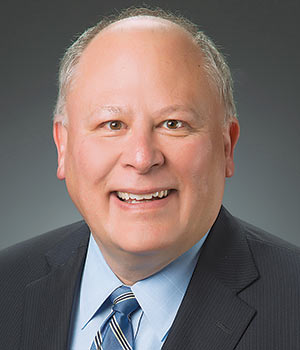Despite efforts at the federal policy level, healthcare costs in the United States remain the highest in the world and are closing in on 20 percent of the national GDP. The Affordable Care Act, or Obamacare, was successful in providing many more Americans healthcare coverage but largely unsuccessful in addressing inefficiencies in the insurance marketplace or containing costs throughout the system.
The Trump Administration, after failing to repeal Obamacare, has turned to tweaks in regulations and other initiatives. Meanwhile, some presidential aspirants claim a Medicare-for-All system will solve many problems.
Fundamental to any debate on healthcare is whether we should depend on a government solution or solutions from the private sector.
For nearly 83 years, Vancouver Clinic has worked to constantly improve its care system. We believe that doctors, patients and payors working together can make healthcare better. You see, how the delivery system in healthcare is designed can make a big difference in the outcomes achieved.
Interestingly, parts of the country that have organized medical groups delivering care do better on quality of care and managing total cost of care.
The following four principles should be followed to help fix a broken healthcare system.
Healthcare needs to be integrated. A major cause of variable quality and costly healthcare is fragmentation. Every person should have a relationship with a primary care clinician who coordinates the patient’s care. This is where the multi-specialty physician group practice model excels.
Healthcare needs to be paid on value. We need to move to a funding system that pays appropriately for a population of patients to be served. Setting an actuarially based budget that allows providers and patients the flexibility to choose the right service, at the right location, at the right time is key. For example, we need to increase and incentivize access to primary care over emergency rooms. For many surgical procedures, an ambulatory surgery center is a safe and much lower cost alternative than a procedure in a hospital setting.
Healthcare needs to be technology enabled. Clinicians and patients can benefit from greater use of technology that simplifies and streamlines the delivery system. Such services need to be covered by insurance and regulatory restrictions need to ease.
Healthcare needs to be patient centered and physician led. Patients need to be engaged in their health. Physicians need to have a strong voice in the way healthcare is delivered and play a leadership role in the direction of the healthcare system.
We are making progress. More and more of our insurance contracts are moving to “value-based” arrangements that incentivize providers for performance on quality and cost. At Vancouver Clinic, over 65 percent of our Medicare patients are now in a value –based program called Medicare Advantage.
As an example of how we deliver great medicine to these patients, a number of them have diabetes, a treatable but chronic and potentially debilitating disease. We use technology to track all of our diabetic patients in a registry that helps us make sure they are getting regular glucose monitoring, that they get a regular foot exam to head off potential for amputation, and that they get a regular eye exam to head off blindness.
Consequently, we improve a lot of lives and save significant dollars through this delivery system innovation. More and more, we are applying this to other chronic illnesses and other populations of patients.
Finally, it’s a fact that in the United States, 5 percent of the population consumes nearly 50 percent of the resources in healthcare. Much of this is driven by this population not receiving the right services, at the right time, and at the right cost.
Vancouver Clinic just launched a special neighborhood clinic in partnership with Humana that is targeted at some of the most vulnerable and highest need population in our community. Because of this unique setting and our close partnership with an insurer, we can help patients with needs that the medical system can’t always provide. Things like greater socialization, a better diet plan, and regular exercise are built into the clinic offering.
So, while the politicians and policy makers continue to wrestle with this issue of fixing a broken healthcare system, there is hope. Progress is being made by the private sector and caring clinicians in Southwest Washington.
Mark Mantei is the CEO of Vancouver Clinic, a 350-clinician, integrated multi-specialty group practice, serving over 190,000 residents in Southwest Washington.






